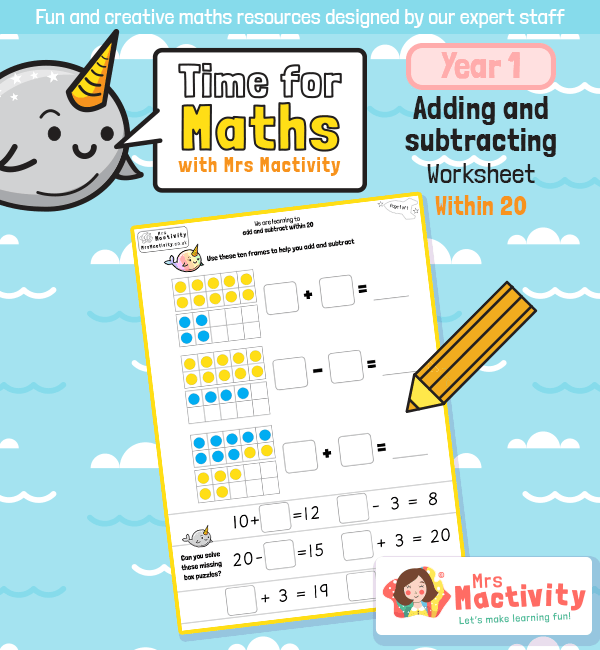In the past few years, when you talk about maths, you talk about maths mastery too! Lots of schools have ditched the maths worksheets and taken up the maths mastery approach when it comes to teaching maths. But the question is – what is maths mastery? How can maths mastery be taught and how does maths mastery help pupils learn maths easily? The research is clear – maths mastery works and there is plenty of evidence to support this. Want to know more? Here are our Top Tips for Teaching Maths Mastery.
What is maths mastery?
The idea for maths mastery came from methods of teaching maths from schools in Asia, specifically Singapore. As you probably know, children from countries such as China, Singapore, South Korea and Japan out perform western children when it comes to maths – but the question is – why? The answer is – the way that maths is taught. Namely, the maths mastery approach.
As part of maths mastery, children master maths fluency through maths problem solving, without having to learn maths facts by heart. When teaching maths mastery, the whole class works together covering topics in depth. Teachers are not supposed to move onto the next concept until all children are sufficiently secure, which means that children don’t get left behind, struggling on one concept without given sufficient time to develop maths understanding. This slower pace means it is less likely that teachers will have to revisit maths topics later on, and helps children build confidence as they know they can take their time to build up their maths skills.
Usually in primary schools, children are put into maths “table groups” based on ability. This might be their usual table group, or a completely different one. Unfortunately what tends to happen is that children develop a mindset about maths. Either they are good at maths, or they aren’t, or so they feel. It also means that children aren’t exposed to other children with a deeper understanding of maths and aren’t able to learn from them as they normally would. The maths mastery approach is far more inclusive, and works on the basis that children should be taught different methods of problem solving whilst working at their own pace. For those children who grasp maths more quickly, they should be given maths work with additional challenge at greater depth, thus developing their learning further.
Summary of maths mastery
- Maths mastery ejects the idea that ‘maths is for the selective few’.
- ALL children are encouraged by the belief that by working hard they can succeed using a “growth mindset”.
- ALL children are taught through interactive whole class teaching. ALL children access the same content. NO ABILITY GROUPS EVER!
- If a child fails to grasp a concept this is identified quickly and intervention ensures the child is ready to move forward with the rest of the class.
- Procedural fluency and conceptual understanding are taught side by side.
Top Tips for introducing Mastery!
- If we know the basics off by heart, we leave space for those more abstract concepts. If we lay a firm foundation, we build a stronger house.
- Maths is hands on. We can’t reach that deeper level of understanding without sustained shared thinking between the teacher and the children. Don’t be afraid to have those quality interactions with children.
- Question and discuss! Asking open ended questions that promote that sustained shared thinking is really important.
- Maths is hands on! Play with it, discuss it, question it, pull it apart and see how it works.
- Maths is fun. We are in the business of promoting a life long love of learning don’t be afraid to get excited about maths.
- Always/sometimes/never? Expose children to problem solving early on.
- Teach the concept, lock in the concept and now switch up the concept!Go deeper not over! Look at concepts in more depth rather than speeding through the concepts.
- No ability groups! If we teach to ability groups children never leave them! They are never exposed to more challenging concepts and we remove the opportunity for peer learning.
Top tips for Maths Mastery in EYFS and KS1
- Count as you go! Show children how counting is an everyday skill. For example when you’re giving out the fruit at snack time – count how many pieces you have! When you’re taking the register – count together how many children are here today, is it a one digit or two digit number? How many tens? How many ones?
- Explore numbers! The fiveness of 5, what makes a number a number? What does it look like? How does it feel? How is it represented?
- Scaffold! Show the children what to do in an explicit way as part of your discreet teaching. Model and explain your thinking.
- Maths for a purpose! Why count teddies when you could count pennies?
- Problem solve in a practical way! How high can you build that tower? What would happen if…? Is it always like that?
- Learn through play! Through practical activities.
Top tips for Mastery differentiation
- Use concrete, pictorial and abstract resources to help scaffold the learning.
- Skilful questions! Use your teacher questions to help not just assess.
- Rapidly act on misconceptions.
- Share mistakes. Create a culture where mistakes are just as important as the answers. Mistakes show us what something is not, that is just as valid as knowing what it is.
- Faster is not always better. True understanding is much more important.
Top tips to help children develop Maths mastery
- Encourage them to make mistakes. Good mathematicians get it wrong it is part of the process/
- Look for challenges. Encourage that feeling of not knowing and make it exciting.
- Work together. Maths is a team sport!. Encourage children to share their knowledge, teach a friend, work it out together.
- Encourage children to change their minds and ideas. Embrace the new.
- Show their work. Maths doesn’t have to be kept in people’s heads. Draw the diagram, write it down, show your working.
- Solve real world problems. Maths is real, it is important to functioning in society, make it feel like that.
- Talk about Maths. Relate it to the everyday and even the mundane. Get excited about it and share the beauty of Maths.
- Explain your thinking. It is not enough to know the answer, can you explain how you got there? Can you help a friend get there
- Encourage children to check their own work
- Help them believe! Encourage, praise, tell them their doing a great job.
If you are looking for maths mastery resources for EYFS, maths mastery powerpoints, maths worksheets and more, you’re in the right place!





Like what you see? Explore our maths mastery scheme of work.







